Kia XCeed vs MG ZS - Differences and prices compared
Costs and Efficiency:
Price and efficiency are key factors when choosing a car – and this is often where the real differences emerge.
MG ZS has a noticeable advantage in terms of price – it starts at 18000 £, while the Kia XCeed costs 23100 £. That’s a price difference of around 5143 £.
Fuel consumption also shows a difference: MG ZS manages with 5 L and is therefore distinct more efficient than the Kia XCeed with 6.40 L. The difference is about 1.40 L per 100 km.
Engine and Performance:
Under the bonnet, it becomes clear which model is tuned for sportiness and which one takes the lead when you hit the accelerator.
When it comes to engine power, the MG ZS has a minimal edge – offering 197 HP compared to 180 HP. That’s roughly 17 HP more horsepower.
In acceleration from 0 to 100 km/h, the Kia XCeed is minimal quicker – completing the sprint in 8.50 s, while the MG ZS takes 8.70 s. That’s about 0.20 s faster.
In terms of top speed, the Kia XCeed performs a bit better – reaching 210 km/h, while the MG ZS tops out at 179 km/h. The difference is around 31 km/h.
There’s also a difference in torque: Kia XCeed pulls clearly stronger with 265 Nm compared to 148 Nm. That’s about 117 Nm difference.
Space and Everyday Use:
Beyond pure performance, interior space and usability matter most in daily life. This is where you see which car is more practical and versatile.
Seats: offers more seating capacity – vs .
In curb weight, MG ZS is barely noticeable lighter – 1330 kg compared to 1351 kg. The difference is around 21 kg.
In terms of boot space, the MG ZS offers barely noticeable more room – 443 L compared to 426 L. That’s a difference of about 17 L.
In maximum load capacity, the MG ZS performs minimal better – up to 1457 L, which is about 79 L more than the Kia XCeed.
When it comes to payload, Kia XCeed slight takes the win – 479 kg compared to 470 kg. That’s a difference of about 9 kg.
Who wins the race?
The MG ZS proves to be performs better in key areas and therefore becomes our DriveDuel Champion!
MG ZS is the better all-rounder in this comparison.
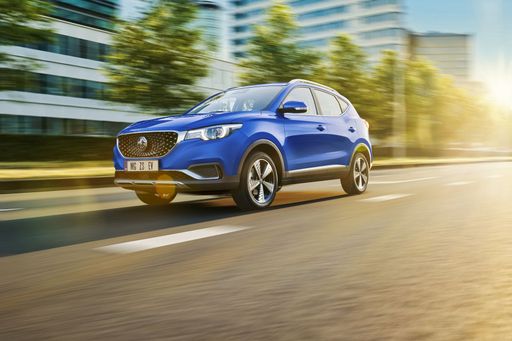 @ MG Motor / SAIC Motor Corporation
@ MG Motor / SAIC Motor Corporation
MG ZS
Costs and Consumption
View detailed analysis
Engine and Performance
View detailed analysis
Dimensions and Body
View detailed analysis
Kia XCeed
Kia XCeed blends hatchback agility with a coupe-like stance, wrapping practical space in a handsome, modern package that punches above its class in style. It’s an easygoing everyday companion — comfy, well-equipped and priced to make sensible buyers smile — with just enough spark to keep weekend drives interesting.
details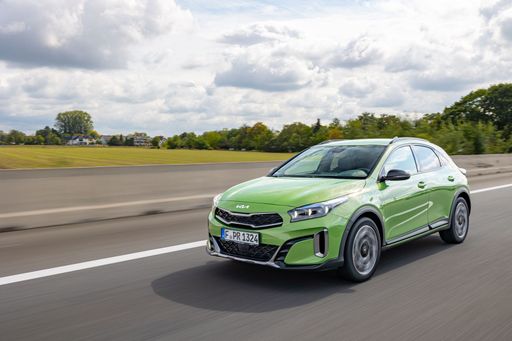 @ Kia Corporation
@ Kia Corporation
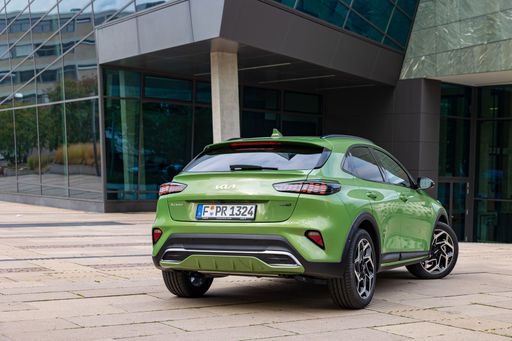 @ Kia Corporation
@ Kia Corporation
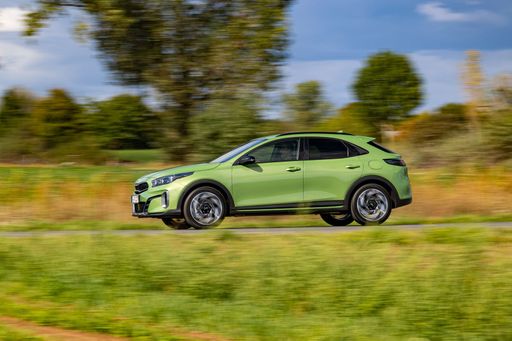 @ Kia Corporation
@ Kia Corporation
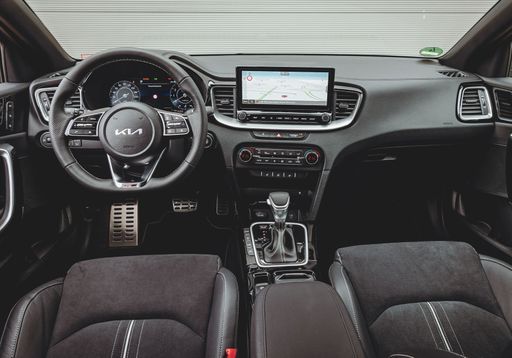 @ Kia Corporation
@ Kia Corporation
MG ZS
The MG ZS arrives as a cheeky and practical choice for shoppers who want SUV style and family-friendly space without blowing the budget. It may not pretend to be premium, but with sensible equipment, easy-to-live-with driving manners and surprising value, it makes a persuasive case for anyone after sensible transport with a bit of personality.
details @ MG Motor / SAIC Motor Corporation
@ MG Motor / SAIC Motor Corporation
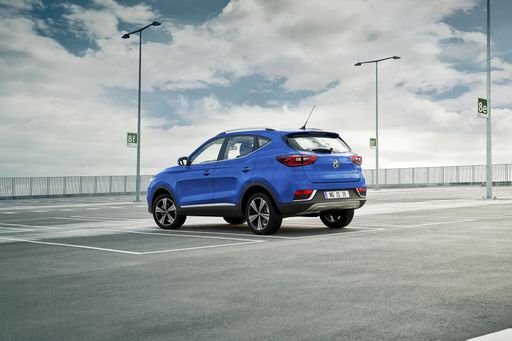 @ MG Motor / SAIC Motor Corporation
@ MG Motor / SAIC Motor Corporation
 @ MG Motor / SAIC Motor Corporation
@ MG Motor / SAIC Motor Corporation
 @ MG Motor / SAIC Motor Corporation
@ MG Motor / SAIC Motor Corporation
 @ MG Motor / SAIC Motor Corporation
@ MG Motor / SAIC Motor Corporation
 @ Kia Corporation
@ Kia Corporation
|
 @ MG Motor / SAIC Motor Corporation
@ MG Motor / SAIC Motor Corporation
|
|
|
|
Costs and Consumption |
|
|---|---|
|
Price
23100 - 33000 £
|
Price
18000 - 24000 £
|
|
Consumption L/100km
6.4 - 6.8 L
|
Consumption L/100km
5 - 6.5 L
|
|
Consumption kWh/100km
-
|
Consumption kWh/100km
-
|
|
Electric Range
-
|
Electric Range
-
|
|
Battery Capacity
-
|
Battery Capacity
-
|
|
co2
144 - 155 g/km
|
co2
113 - 145 g/km
|
|
Fuel tank capacity
50 L
|
Fuel tank capacity
41 - 55 L
|
Dimensions and Body |
|
|---|---|
|
Body Type
SUV
|
Body Type
SUV
|
|
Seats
5
|
Seats
5
|
|
Doors
5
|
Doors
5
|
|
Curb weight
1351 - 1419 kg
|
Curb weight
1330 - 1420 kg
|
|
Trunk capacity
426 L
|
Trunk capacity
443 L
|
|
Length
4395 mm
|
Length
4430 mm
|
|
Width
1826 mm
|
Width
1818 mm
|
|
Height
1483 - 1495 mm
|
Height
1635 mm
|
|
Max trunk capacity
1378 L
|
Max trunk capacity
1457 L
|
|
Payload
471 - 479 kg
|
Payload
375 - 470 kg
|
Engine and Performance |
|
|---|---|
|
Engine Type
Petrol
|
Engine Type
Full Hybrid, Petrol
|
|
Transmission
Manuel, Automatic
|
Transmission
Automatic, Manuel
|
|
Transmission Detail
Manual Gearbox, Dual-Clutch Automatic
|
Transmission Detail
Automatic Gearbox, Manual Gearbox
|
|
Drive Type
Front-Wheel Drive
|
Drive Type
Front-Wheel Drive
|
|
Power HP
115 - 180 HP
|
Power HP
116 - 197 HP
|
|
Acceleration 0-100km/h
8.5 - 11.7 s
|
Acceleration 0-100km/h
8.7 - 12.5 s
|
|
Max Speed
182 - 210 km/h
|
Max Speed
168 - 179 km/h
|
|
Torque
200 - 265 Nm
|
Torque
148 Nm
|
|
Number of Cylinders
3 - 4
|
Number of Cylinders
4
|
|
Power kW
85 - 132 kW
|
Power kW
85 - 145 kW
|
|
Engine capacity
998 - 1598 cm3
|
Engine capacity
1495 - 1498 cm3
|
General |
|
|---|---|
|
Model Year
2025
|
Model Year
2024 - 2025
|
|
CO2 Efficiency Class
E
|
CO2 Efficiency Class
C, E
|
|
Brand
Kia
|
Brand
MG
|
Is the Kia XCeed offered with different drivetrains?
The Kia XCeed is available as Front-Wheel Drive.
The prices and data displayed are estimates based on German list prices and may vary by country. This information is not legally binding.
